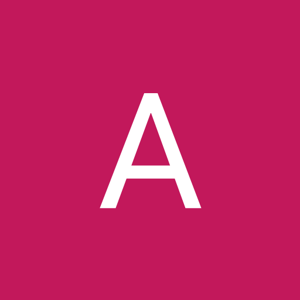The PR Cryogenic Insulation Market is a specialized yet critical segment focused on materials and systems designed to minimize heat transfer at extremely low temperatures, typically below -150°C (-238°F). This market is fundamental to industries dealing with liquefied gases, ensuring their safe storage, transportation, and efficient use by preventing boil-off losses and maintaining thermal stability. Key applications span liquefied natural gas (LNG), industrial gases (oxygen, nitrogen, argon, hydrogen), aerospace, healthcare (cryopreservation), and research.
Get A Free Sample Report: https://www.snsinsider.com/sample-request/2696
Overview:
Cryogenic insulation solutions range from vacuum-insulated systems, multi-layer insulation (MLI), foam insulation (e.g., polyurethane, polyisocyanurate), perlite, and advanced materials like aerogels. The primary objective is to create a thermal barrier that effectively isolates the ultra-cold cryogenic fluid from ambient temperatures, thereby reducing energy consumption, enhancing safety, and preserving the integrity of the stored substance. The market's complexity lies in selecting the optimal insulation type for specific temperature ranges, pressure conditions, and application requirements, balancing performance with cost-effectiveness.
Key Drivers:
Several robust drivers are propelling the growth of the PR cryogenic insulation market. Firstly, the surging global demand for Liquefied Natural Gas (LNG) is a paramount factor. As countries increasingly shift towards cleaner energy sources and diversify their energy portfolios, the need for efficient and reliable LNG storage tanks, carriers, and regasification terminals, all reliant on advanced cryogenic insulation, continues to expand.
Secondly, the expansion of the industrial gases sector is a significant contributor. Industrial gases like liquid oxygen, nitrogen, and argon are vital for manufacturing, electronics, metallurgy, and food processing. The growing industrialization, particularly in developing economies, directly translates to increased production, storage, and distribution of these gases, necessitating high-performance cryogenic insulation.
Thirdly, advancements and applications in the healthcare and life sciences sectors are driving demand. Cryopreservation of biological samples, tissues, and pharmaceuticals, as well as the use of cryogenic gases in medical imaging (e.g., MRI machines), require precise temperature control and robust insulation solutions.
Fourthly, the growth in the aerospace and defense industries, particularly in space exploration and missile technology, relies heavily on cryogenic propellants (like liquid hydrogen and oxygen). This necessitates lightweight, high-performance insulation for spacecraft fuel tanks and ground support equipment.
Finally, the increasing focus on energy efficiency and minimizing operational losses across all cryogenic applications is pushing for better insulation technologies to reduce boil-off rates and lower overall costs.
Regional Analysis:
Geographically, the cryogenic insulation market exhibits distinct regional dynamics. North America and Europe currently hold substantial market shares, driven by well-established industrial infrastructure, significant investments in LNG terminals, advanced aerospace programs, and mature healthcare sectors. These regions are also hubs for research and development in advanced insulation materials.
The Asia-Pacific region is projected to witness the fastest and most substantial growth. This acceleration is attributed to rapid industrialization, burgeoning energy demands, significant investments in LNG import/export terminals (especially in China, India, Japan, and South Korea), and the expansion of healthcare and manufacturing sectors.
The Middle East & Africa and Latin America are emerging markets, experiencing growth due to increasing investments in oil and gas infrastructure, developing industrial bases, and a growing awareness of the benefits of cryogenic technologies.
Trend Growth:
The market is characterized by several key trends. The development of advanced insulation materials, such as vacuum insulation panels (VIPs) and next-generation aerogels, is paramount. These materials offer superior thermal performance in thinner profiles, critical for space-constrained applications.
Another significant trend is the increasing adoption of multi-layer insulation (MLI) for its exceptional performance in high-vacuum environments, particularly in aerospace and large-scale storage tanks. There's also a growing emphasis on lightweight and compact insulation solutions to reduce transportation costs and improve efficiency, especially in mobile cryogenic applications.
Furthermore, the integration of smart monitoring systems within insulation layers to detect leaks, monitor temperature gradients, and assess insulation degradation in real-time is an emerging trend, enhancing safety and predictive maintenance. Finally, sustainability considerations are influencing material choices and manufacturing processes, with a push towards more environmentally friendly and recyclable insulation options.
Conclusion:
The PR cryogenic insulation market is on a strong upward trajectory, underpinned by the escalating global demand for LNG, the expansion of industrial gas applications, and advancements in healthcare and aerospace. While North America and Europe maintain their leading positions, the Asia-Pacific region is set to be the primary growth driver. The future of this market will be defined by continuous innovation in high-performance, lightweight, and smart insulation materials, alongside a growing commitment to sustainable practices, all aimed at ensuring the safe and efficient handling of ultra-cold substances across diverse industries.
About Us:
SNS Insider is one of the leading market research and consulting agencies that dominates the market research industry globally. Our company's aim is to give clients the knowledge they require in order to function in changing circumstances. In order to give you current, accurate market data, consumer insights, and opinions so that you can make decisions with confidence, we employ a variety of techniques, including surveys, video talks, and focus groups around the world.
Contact Us:
Jagney Dave - Vice President of Client Engagement
Phone: +1-315 636 4242 (US) | +44- 20 3290 5010 (UK)
Trending Report:


Write a comment ...